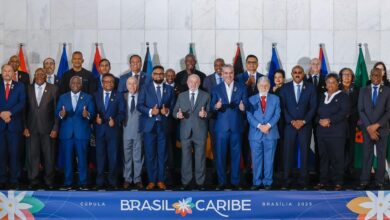CASTRIES, St Lucia, Jan 27, CMC – Caribbean climate change negotiators are meeting here in preparation for global talks on the environment in Paris later this year.
The talks are a follow-up to the 20th Conference of Parties (CoP) held in Peru last December.
“The crucial Paris meeting should see the adoption of a new global agreement for reducing climate change under the convention,” said Crispin D’Auvergne, Chief Sustainable Development and Environment Officer here.
He told the Caribbean Media Corporation (CMC) that the meetings here will formulate the position of negotiators based on an analysis of decisions arrived at in Peru.
“The negotiators all have their sights on Paris because that’s where we will adopt policies that will come into effect in 2020. The December meeting is critical because that’s where a new agreement for climate change will be signed,” he said.
Caribbean negotiators say they are seeking a collective approach to major outstanding climate change concerns, advising that reducing the carbon footprints can only be achieved if everyone plays their part.
They said that in the region it must be accepted that the response to climate change has to be taken at the collective level–the private sector, civil society, general populace and the government which will play a leading role in that process.
Among the critical concerns identified are that greenhouse gas concentrations in the atmosphere are increasing faster than was projected back in 1990 and even 1997 when some development countries pledged to reduce their emissions.
“The higher the concentration, the greater the impact of climate change and sea level rise, higher storms, and increased temperature on agriculture and health, coral reefs.
“Another concern relates to the flow of financial and other resources to support adaptation and mitigation in the region,” D’’Auvergne said, adding there was also the issue of what is now being described as “loss and damage.
“You can adapt only to a certain point but if sea surface temperatures become so high that your reefs die off and they never recover then you cannot adapt any further.
“That’s where the concept of irreversible loss and damage come in and that is something that the Caribbean has been pushing and agitating for at the international level in their negotiations,” D’ Auvergne said.
He advised that less rainfall is expected in the coming years as a result of climate change and that the region’s tourism sector can be affected since its a major consumer of water.
While the world has generally not fully met the Millennium Development Goals (MDG) for 2015, D’Avergne said the Caribbean has been proactive and has met quite a few of its own.
“This year we are looking to supersede the MDG with sustainable development goals which will come out of what is known as the Post 2015 Agenda which is going to be negotiated at the United Nations this year,” D ‘Auvergne said.





